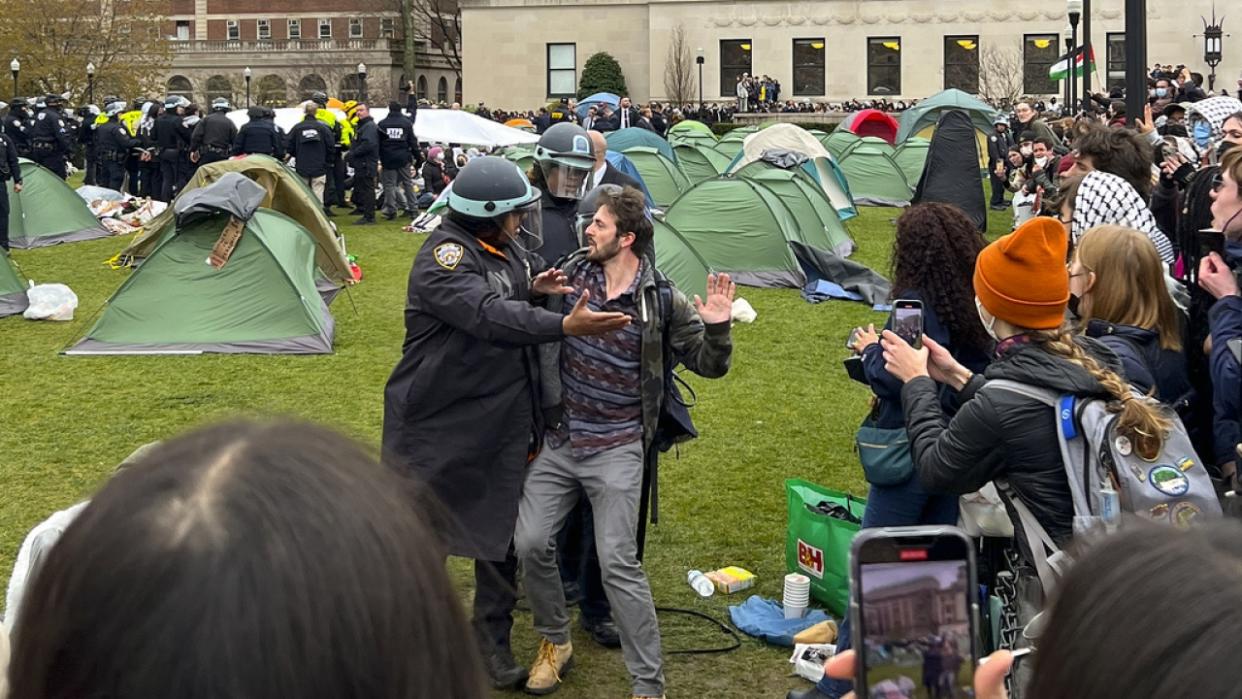As protests surge, universities grapple with what to do about graduation
Graduation season is steeped in tension this year: Campuses have seen protests over the Israel-Hamas War break out just weeks before the same lawns that are seeing picket signs and encampments will be used for handing out diplomas.
The University of Southern California made the decision to pull the plug on its main graduation ceremony after almost 100 students were arrested during protests this week. That change cme after the university canceled the speech by a Muslim valedictorian for what the school called "safety" reasons. The student, Asna Tabassum, counters that her pro-Palestinian stance led the school to silence her.
At the University of Michigan, graduation is scheduled to go on as usual, except there will be a designated spot for protesters. This decision came after another on-campus ceremony was disrupted by protests last month.
UM President Santa Ono saying the disruption was "unacceptable", adding "One group's right to protest does not supersede the right of others to participate in a joyous event."
Kevin Goldberg is a first amendment specialist at Freedom Forum, a nonpartisan nonprofit that promotes education about free speech rights.
"I sympathize as well with administrators that are trying to both facilitate and and embrace and even encourage the right of students to protest and speak their minds, but also really have to balance that with the need to protect safety on campus," he said.
Goldberg says it's not a First Amendment violation to prohibit protestors from disrupting a ceremony or disrupting other students from going to class.

Education
Columbia University goes virtual amid pro-Palestinian protests
"Have the graduation, have that event, have those speakers. Anyone who disrupts that can be kicked out because it is reasonable to do so to allow that event to go forward. As long as you are taking out all the disruptive speakers," said Goldberg.
However, he also hopes that campuses don't extinguish the rights of students to voice their opinion on campus – even if that opinion is uncomfortable to other students or faculty members.
"It's that everybody gets to have their say and that is really important because it's not just about getting to have your say, it's about getting to have your say so you don't take action in other, more destructive ways. It's about getting to hear other points of view," he said.
In an open letter to universities, the Anti-Defamation League, an organization the fights antisemitism, is imploring schools to ensure graduation ceremonies will continue and without disruptions, saying in part: "To allow disturbances such as these to ruin a lifecycle moment for students and their families is simply unacceptable and ultimately, a failure of leadership and an insult to the broader campus community."
